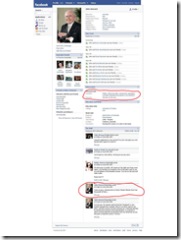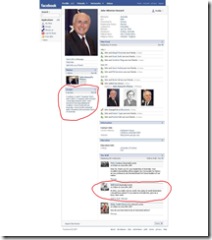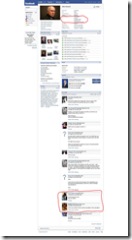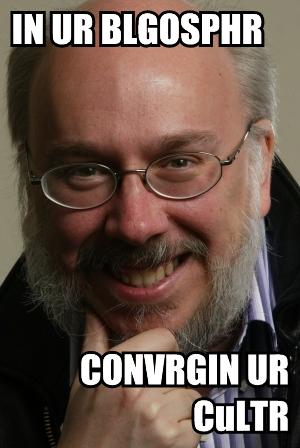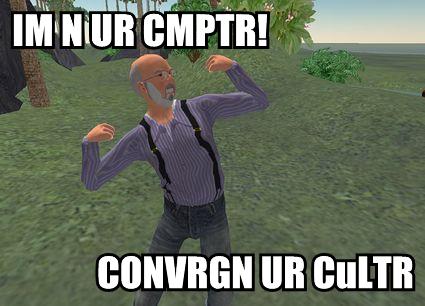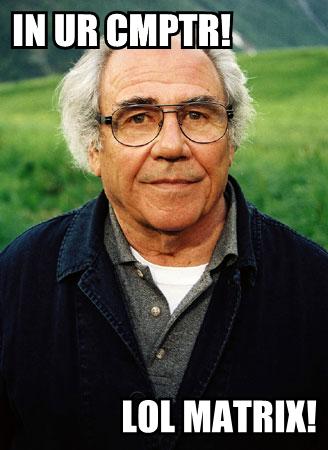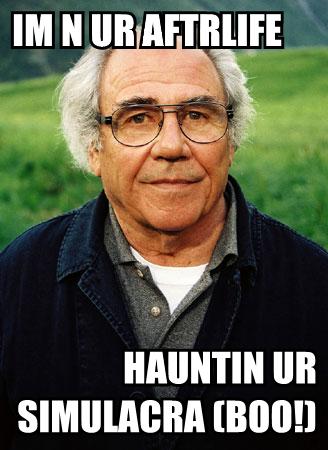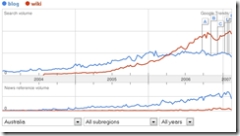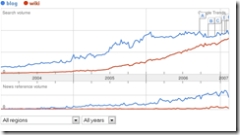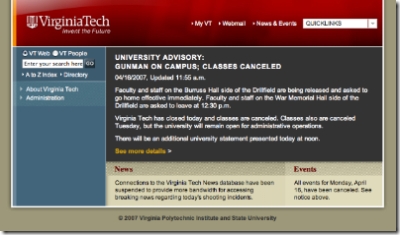Home » blogs (Page 9)
Category Archives: blogs
Facebook and Australian Politics?
Over the past month I’ve suddenly seen Facebook grow from an oddity to something on which the majority of my university-based friends appear. Since I spent some of yesterday pondering the oddities of US politics and digital culture, I thought I’d spend a little of today looking at Australian politics. For those of you not in the know, Australia has what amounts to a two-party political system, divided between Liberal (close to Republican/Tory parties) and Labor (close to the Democrat/UK Labor parties); the Liberal party is led by John Howard, who is our current Prime Minister, while the Labor party, after many years of leadership ambiguity, is led by Kevin Rudd.
Unlike the US (and a lesser extent the UK), mainstream press and politics in Australia really hasn’t embraced either the blogosphere or social networking as a means of promotion or gaining support (and Australian politicians can’t and don’t fund-raise in the explicit way US politicians do). That said, younger voters are clearly looking for some sort of connection with the political sphere, even if its not done through the same rhetoric of civil participation that comes through the US education and advocacy systems. So, that said, is either Australia’s Prime Minster or his Labor rival on Facebook? The answer, initially, appears yes to both, although after some scrutiny, the answer changes to yes for Rudd and no for John Howard – there are, in fact, three Howards, but all are fake.
Of the three Howards, two are obvious fakes, while one is more subtle, but still not authentic. Since this is a fun moment to think about digital literacy, I’ve taken screenshots of the three Howard profiles and circled in red the most obvious indicators that these aren’t authentic pages.
and John Howard #3 …
In contrast, Kevin Rudd’s Facebook page is rather dull, but clearly authentic. (I’ve just made a friend request, so if there’s anything exciting in friends-only land, I’ll write a little more.) It is worth noting that comments which cast John Howard as a sexual or ‘hot’ figure are unambiguously meant to be satirical, in contrast to the clips from the US mentioned yesterday which, while playful, aren’t necessarily ironic (although they might be, especially Hott4Hill).
LOL Theorists
In a fit of silliness, I find myself using the LOL CATS builder for terrible, terrible, theorist humour …
Where did this insanity come from? I blame Jean (Burgess, not Baudrillard!). (More here.)
Update: Henry Jenkins linked to the LOL Theorist mashups of himself! 🙂
The 4400 Goes Viral (Marketing)
The 4400 has taken to viral marketing dramatically in order to build the word before the upcoming fourth season of the TV show. According to AdWeek:
To promote the new season of The 4400 on USA Network, Campfire has created a wide-ranging interactive world consisting of 80 videos that run from 30 seconds to five minutes and six Web sites. […] The 4400 follows 4,400 people who are abducted, taken away and then returned to planet Earth. After their return, many of them discover they have superpowers. As the fourth season begins on June 17, the plot follows the development of a drug called Promicin: it gives the users superpowers, if it doesn’t kill them. Three different factions emerge around the drug: pro, anti- and neutral.
On YouTube, for example, one of the show’s stars, Billy Campbell, appears in character as Jordan Collier, advocating Promicin and the decrying the government’s attempts to ban the drug. Here’s Jordan Collier dispatch #3:
Elsewhere on the net, we can find the Promicin Power website, which argues that Promicin is the key to world peace and a sustainable relationship with nature. Here’s one example that looks like it could be have been a United Colours of Bennetton advertisement in a past life:
At the other extreme, there’s also Promicin Terror which sees the drug as the biggest threat to the US since Al Qaeda. Clearly building on the famous ‘Daisy‘ political ad of the 60s (which was recycled in the US debates about the War with Iraq), this is an example of a clip campaigning to ban the drug:
I quite enjoyed the last season of The 4400 and am heartened to see the show’s producers so actively embracing the potential of video-sharing and online word-of-mouth. The clips are a little over-produced, but given the state of a lot of TV advertising today, I’m sure they could easily be mistaken for the ‘real thing’.
Searching Blogs Vs Wikis – Australians Prefer Wiki (The World Prefers Blog)
I was playing with Google Trends and their comparison function and noticed that you can now limit searches to regions (ie just Australia, for example). I was playing around looking at the comparative popularity of ‘blog’ versus ‘wiki’ and found something interesting: cumulatively, global searchers are still typing in ‘blog’ more, but in Australia, ‘wiki’ is a more popular term, and has been since the third quarter of 2006. Since there’s no scale on Google Trends, I’ve no numbers attached to these trends, but the results are interesting nevertheless.
Australia is looking for wikis…
While the world is looking for blogs…
[Click either image to expand.]
I’ve no idea why wikis are more popular in Australia … perhaps something to do with Wikipedia? I note in the News trends (the smaller bottom graph), blogs are still mentioned a lot more in the mainstream media. I wonder what it is about wikis and Aussies?
The Virginia Tech Shootings and Unintentional Citizen Journalism
I woke this morning to the news that 33 people were dead at Virginia Tech university in the US due to a gunman’s “shooting rampage” . Apart from the tragedy itself one line which struck me as odd in initial report I was reading from the BBC (and I struck, literally, hundreds more when I started working through the posts in the eight hours since I last looked at the aggregated news in Google Reader) was this:
Eyewitnesses said some students jumped from classroom windows to escape the gunfire, which triggered panic on campus.
Some of those locked down inside the university buildings were using the internet to try to glean information about what was happening and many e-mailed the BBC News website. [Emphasis added.]
Why would Virginia Tech students turn to the BBC for information on a real-time event happening around them in the United States? While the BBC was certainly a focal point in the aftermath of the 2005 London Bombings, this line struck me as just odd (and uncharacteristically self-important for the usually quite staid BBC). Looking a little further around the BBC website, I found this story from Virginia Tech student Nikolas Macko which describes the experience of staying inside one of the classrooms while gunshots could be heard nearby. The BBC was certainly quick off the mark with this story, so I guess if students didn’t find anything on the BBC, perhaps they sent their stories in by email or the other means the BBC has set up to highlight reports from everyday folk.
Reading further, Dan Gillmor of Citizen Media points out that most of the news stories on US television feature a cameraphone video taken by a VT student in which gunshots can be clearly heard, but not seen (the video is, of course, now available on YouTube, found via NewTeeVee).
A number of mainstream media outlets have also turned to blogs to find eyewitness and VT student testimonials. One blogger, ntcoolfool aka Bryce Carter, had mainstream media producers requesting help finding cameraphone videos after he posted a videoclip of police cars heading to the scene of the massacre. There was also a request from someone at the Boston Herald for Carter’s thoughts on social software, given that the paper was “wondering if online communication is the best way to stay in touch during a crisis“.
One of the things that stood out to me when reading some of the blog posts from Virginia Tech students, including Carter’s, was how people reacted when their blogged personal thoughts suddenly became mainstream media soundbites. For example, Carter later posted this:
As this blog has received international attention, I find myself wondering what the world has come to. The media watch dogs, no offense, have jumped on this story and on me for, as one anonymous user said, ‘exploit my emotions’. At this time I do not believe this is so, because to put it simply: I’m willing to share my experience. This is nothing special. I don’t deserve any credit. I went to class as any other student would. I just happened to be on the other side of campus when the shots were fired later in the day. But isn’t that just it? What is remarkable about this story is that this is the story of an average student at this great school. Stories of horror, bloodshed, and death are soon to come from the victims of this horrible catastrophe and the limelight will shine onwards, for that is what the public thirsts for.
For those that are interested, I will write a more complete narrative of my experiences of today later, once the media frenzy has died down and I have a minute to better reflect. As of the time I am writing this I have done a radio interview with BBC and talked with a reporter from the LA Times. CBC Newsworld, the Boston Herald, Current TV, and MTV have asked for interviews and further information. As I said I intend to share my experiences with everyone, but I want to reinstate that I am just an average student and I don’t want to be made into something I am not.
Furthermore, upon looking at a few of the posts made on this blog, I want to declare that I am OFFENDED that people are allowing this to become a political debate. People are dead. My friends could be dead. Forget bickering about trivia. Now is not the time or the place. It is the media’s job to report to the public these stories. Take it as you wish. I’m not the media. I’m just me.
A few minutes ago I walked in the hallway of the dorm frustrated with the constant contacts of media coming in every minute. In my arrogance and limited perspective I walked into a friends room while in discussion and yelled out “I hate livejournal!”, which, concerning the current emotions of campus, was not the best thing to do. Understandably, they kicked me out. [Link Via Washington Post Blog Roundup]
Carter, I have to say, seems to be handling his edge of the media spotlight rather well. His comments really emphasise that despite the ideals of citizen journalism, many forms of social software tend to allow ordinary folks to become more like eyewitnesses who are harassed into sharing their perspectives with the mainstream press, far more so than being intentional ‘reporters’ in their own right. That said, Carter’s commentary on the process itself will, I guess, have much more prominence in the aftermath of these tragic shootings. I suspect I might end up talking about Carter’s livejournal experience in a lecture in the near future, when trying to get students to ponder the difference between the initial and intended use of social software and online presence, versus what these textual (another other) online artifacts might, at some point, be used for.
Xeni Jardin’s post about the shootings at Boing Boing has lots of relevant links to citizen-produced commentary (much intentionally so), links and blogs and is a solid starting point if you’re looking to see how reportage about the VT Shootings — both mainstream and otherwise — has grown across the world wide web.
Finally, though, I wanted to share a screenshot posted to the Flickr Virginia Tech Shooting pool. This image is far from graphic, but really hit home because it’s the sort of notice which looks so banal, but says so much. The screenshot is from the Virginia Tech website and reads “Campus Advisory: Gunman on Campus; Classes Canceled“:
This left me wondering, if such a tragic event happened at my university, how would we react? I guess, at some level, that’s the thought that runs through most people’s minds and what makes these shootings feel so visceral to so many people – sympathy, of course, but empathy, too.
